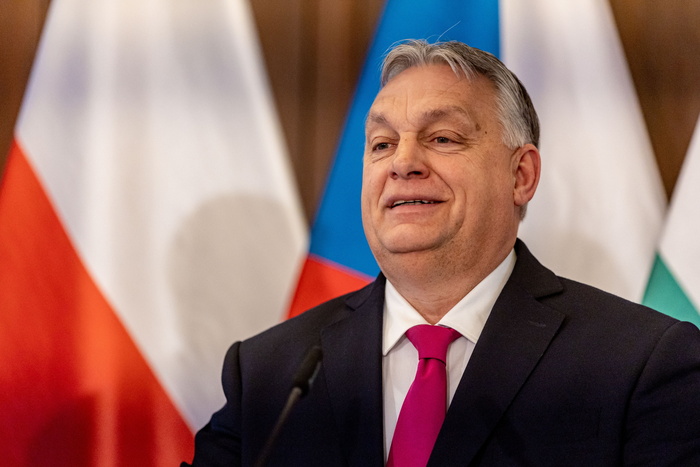Viktor Orbán has never concealed his understanding of politics. It has been a good five years since Hungary's prime minister announced his concept of an "illiberal state" for Hungary. At that time, in July 2014, he also named his role models: Russia, China, Turkey and Singapore.
Orbán has since missed no opportunity to intensify his country's relations with the leaders of these states. In doing so, he is increasingly focusing on diplomatic confrontation with EU foreign policy.
This Wednesday it will be Russian President Vladimir Putin, who once again comes to Budapest at the invitation of Orbán. Hardly any other head of state or government has met more frequently in recent years with Hungary's PM: it is the ninth bilateral meeting of the two since 2013 and the fourth time since 2015 that the Russian head of state is coming to Budapest.
Foreign policy - a question of interests, not values
According to the Hungarian Ministry of Foreign Affairs, the official occasion is economic talks, and several agreements in the commercial, energy and transport sectors should be signed. But Orbán is likely to go for a demonstrative political gesture.
He is by no means the only European head of state or government seeking more closeness to Putin, especially not in the eastern part of the EU. No one is as consistent as Orbán.
For years, he has been pressing for an end to the anti-Russian EU sanctions - and generally for a non-value, but interest-based relationship with countries such as Russia, China or the autocratic ruled Central Asian republics.
Hungarian diplomacy called this policy "opening to the east" after Orbán's accession to the government in 2010. Hungary wants to open up markets with it. Criticism, for example from Germany, rejects Hungary's prime minister always with the argument of the "double standards" - with regard to Germany's economic policy not wrongly.
Orbán enjoys showing up with populists, dictators and right-wing extremists
However, Orbán's policy has been well beyond economic pragmatism for several years. No other head of state or government in the EU is forging such illusory alliances as he does. No one else likes to show up in society with populists, dictators and right-wing extremists:
- Orbán is the EU's main advocate for Western Balkan authoritarian leaders Aleksandar Vucic (Serbia), Milo Djukanovic (Montenegro) and Milorad Dodik (Bosnia-Herzegovina / Republika Srpska) and the recently condemned Macedonian ex-Prime Minister Nikola Gruevski, the Hungarian political asylum granted.
- Together with Serbia, Hungary is driving the Eastern European 17 + 1 cooperation with China the strongest.
- In addition, the PM maintains close ties with Israeli Prime Minister Benjamin Netanyahu and with Turkish President Recep Tayyip Erdogan
- He enthusiastically congratulated US President Donald Donald Trump on his election as the first EU Head of State in 2017 and was the only EU Head of State to lead the inauguration of Brazilian President Jair Bolsonaro in 2019.
For several years now, Orbán has also paralyzed the EU and NATO in important foreign policy decisions: in 2016, Hungary blocked a China-critical EU resolution. This year, the country blocked EU resolutions criticizing Israeli occupation policy in the Palestinian West Bank and most recently Turkey's invasion of Syria.
"Orbán builds on a romantic nationalism"
The political scientist Péter Krekó from the left-liberal Budapest Institute Political Capital now speaks of a "foreign policy special" of Hungary. "Orbán approaches authoritarian states not only because he sees them as a model, and because he and his personal environment often pursue difficult economic interests, but also because he sees himself as a bridge builder and mediator between East and West," says Krekó.
Gáspár Miklós Tamás, a former anti-communist oppositionist and left-wing Budapest philosopher whom Orbán once so venerated that he named his son Gáspár after him, sees today's Hungarian foreign policy as a kind of "farewell to the West".
"Orbán builds on a romantic nationalism that contains such crazy elements as, for example, that we Hungarians as Turkic people are alone and lonely in Europe," says Tamás. "Under Orbán, Hungary is increasingly turning its back on the West and Europe in every respect."














